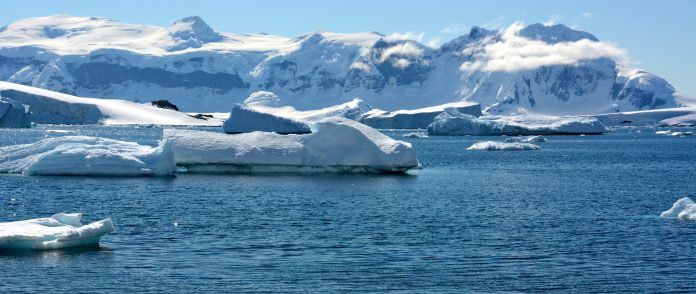Antarctic ice sheets hold enough water to raise global sea levels by several meters, however, their current condition is making researchers increasingly worried
A group of experts from European research organisations have comprehensively assessed the current condition of Antarctica’s immense ice sheets.
According to their analysis, it is not evidence that the ice sheet in West Antarctica is undergoing irreversible, self-reinforcing retreat. However, global warming may still be sufficient to cause gradual and definite ice loss over the next several hundred to thousands of years.
Has a tipping point already been crossed?
“With more and more ice being lost in Antarctica over the last years, concerns have been raised whether a tipping point has already been crossed and an irreversible, long-term collapse of the West Antarctic Ice Sheet has already been initiated,” explains Ronja Reese from the Potsdam Institute for Climate Impact Research (PIK) and the Northumbria University, Newcastle.
The results of their studies revealed two main messages. Firstly, although the glaciers in Antarctica are retreating at the moment, there is no indication of irreversible, self-reinforcing retreat.
However, their calculations indicate that an onset of an irreversible retreat of the ice sheet in West Antarctica is possible if the current state of the climate is maintained.
The main driver behind the ice sheet loss in West Antarctica is relatively warm ocean water, intensifying the melting process beneath the ice shelves.
These ice shelves serve as the floating extensions of the grounded ice sheet, and their melting can expedite the loss of ice by hastening the retreat of the grounded portions of the ice sheet.
This is why the grounding lines in the Antarctic margins, which connect the grounded and floating ice, are crucial indicators of ice sheet health.
If the grounding lines retreat at an accelerated pace, it could signal the potential collapse of significant marine areas within West Antarctica’s ice sheet – specifically, those sections of the ice sheet grounded beneath sea level.
Irreversible ice loss and sea-level rise
Utilising cutting-edge ice sheet models, the scientists conducted a thorough inspection of indications of an irreversible retreat in the marine sectors of the Antarctic ice sheet at the present moment but also conducted simulations to project how the ice sheet might evolve over the next 10,000 years, assuming no changes in current conditions.
These hypothetical experiments suggest that even without any further warming beyond what we have already experienced, an irreversible collapse remains possible in certain marine areas of West Antarctica’s ice sheet.
Because the ice reacts to changes in temperature very slowly, the research indicates that, under the current climate conditions, the earliest point at which a collapse might occur in their simulations is approximately 300 to 500 years from now. A full collapse would take centuries to millennia.
An immediate threat to coastal communities
“The thing with a sea-level rise from Antarctica is not that changes would happen overnight as an immediate threat to coastal communities. The process of melting would happen over hundreds or thousands of years. However, the cause could be human actions today, as they can trigger and commit a future of 10,000 years to several meters of global sea-level rise,” explains Julius Garbe from PIK stresses.
The unpredictability surrounding alterations in ice discharge from Antarctica continues to pose significant uncertainties in forecasting future global sea-level rise.











